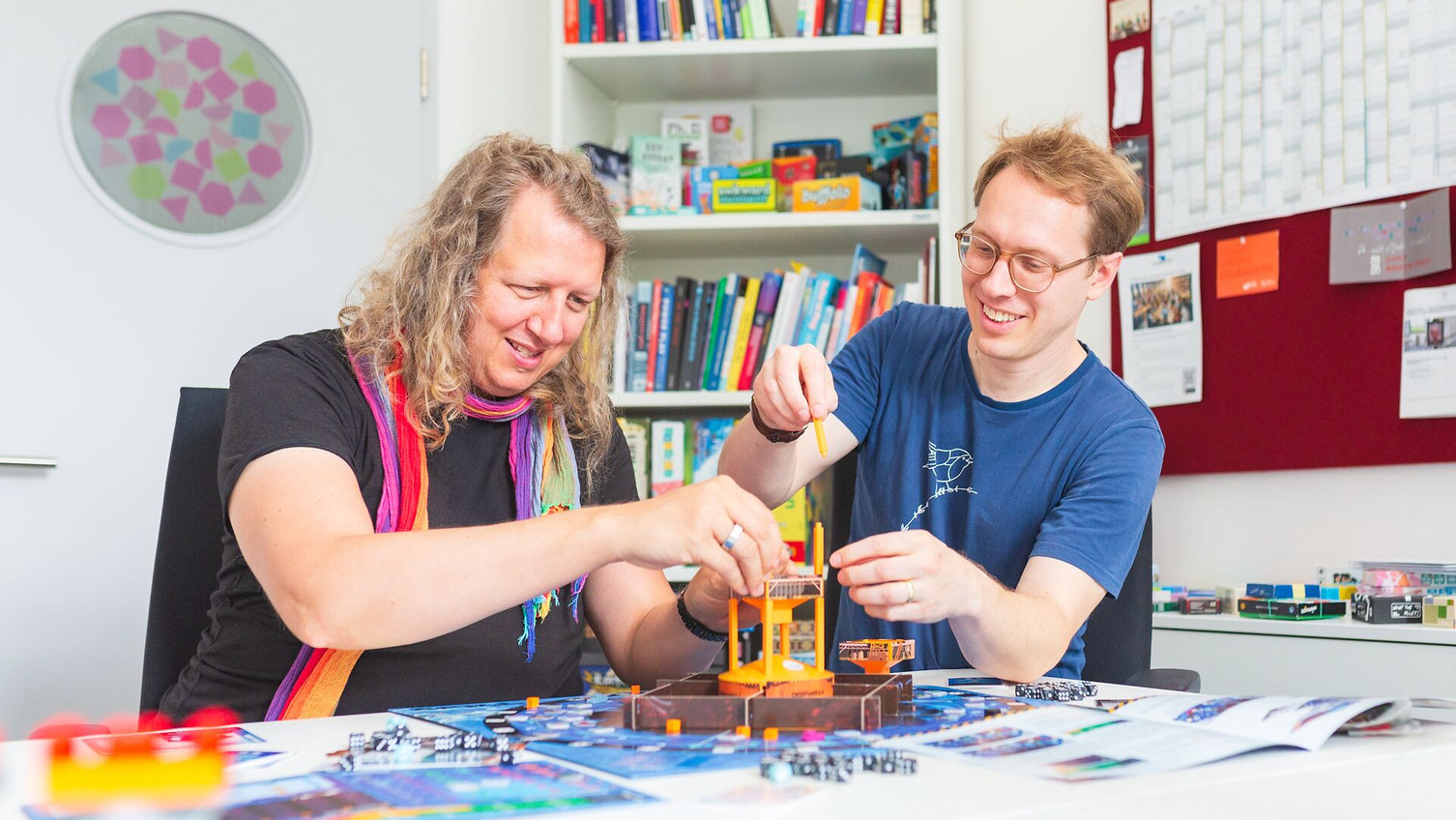Gamification in Teaching: The Cranky Uncle and Science
2025-09-20 In the big methods lecture of the Leuphana semester, first-year students learn through play: The event is one of the flagship projects of the Game Didactics Project.
Becoming a conspiracy theorist – at a university, of all places? It sounds absurd – but that is precisely the goal of an educational game called Cranky Uncle. The app is part of an innovative teaching project at Leuphana that shows how game-based teaching better engages students – and how universities can benefit from it. Behind the project is educational scientist Dr Johannes Katsarov, who heads the Game Didactics Project at Leuphana: ‘People play because they love mental stimulation – at any age.’
As simple as it is effective: through so-called ‘serious games’ – i.e. educational games with educational value – complex content is conveyed in an emotional, interactive and practical way. Meta-studies have already proven that game-based teaching can significantly increase both motivation and learning success. Particularly impressive: in role-playing games on research ethics, greater learning effects were achieved in a few hours than in an entire semester using traditional methods, reports Johannes Katsarov.
One of the flagship projects is the gamified methods lecture in the Leuphana semester. Here, Professor Dr Henrik von Wehrden plays Cranky Uncle with his students, for example. The app makes false claims that learners have to critically examine – in a playful way. The goal: to recognise fake news, see through patterns of argumentation and practise scientific thinking. ‘In the digital age, we need methods that repackage knowledge in a different way,’ explains Henrik von Wehrden, delving even deeper into the game box: on the ‘Guess the correlation’ website, statistical values from scatter plots can be guessed, and with the Financial Times' ‘Climate Game’, students learn to better understand systemic phenomena. These serious games are also part of the lecture.
Henrik von Wehrden often takes innovative approaches to teaching: he has been using the flipped classroom method for several years now: ‘Our students prepare at home and then send us questions, which we answer in the lecture,’ explains the head of the Centre of Methods.
Gamification is not only intended to enrich individual courses: ‘We want to anchor serious games in university teaching in the long term,’ explains Johannes Katsarov. The project focuses on providing comprehensive support for teachers. In modularised training courses, they can learn how to design, implement and evaluate game-based elements in a meaningful way.
In addition, a collection called Games for Higher Education is being created, which presents suitable educational games for different subjects. Workshops for trying out the games and regular events are intended to build a community for game-based teaching at Leuphana. So far, the most popular offering has been advising and supporting Leuphana teaching staff directly in their search for suitable games.
The ‘Game Didactics’ project will continue to be funded until March 2026 as part of the ‘Freiraum’ funding programme of the Foundation for Innovation in Higher Education. The aim is to further develop teaching in an innovative way.

